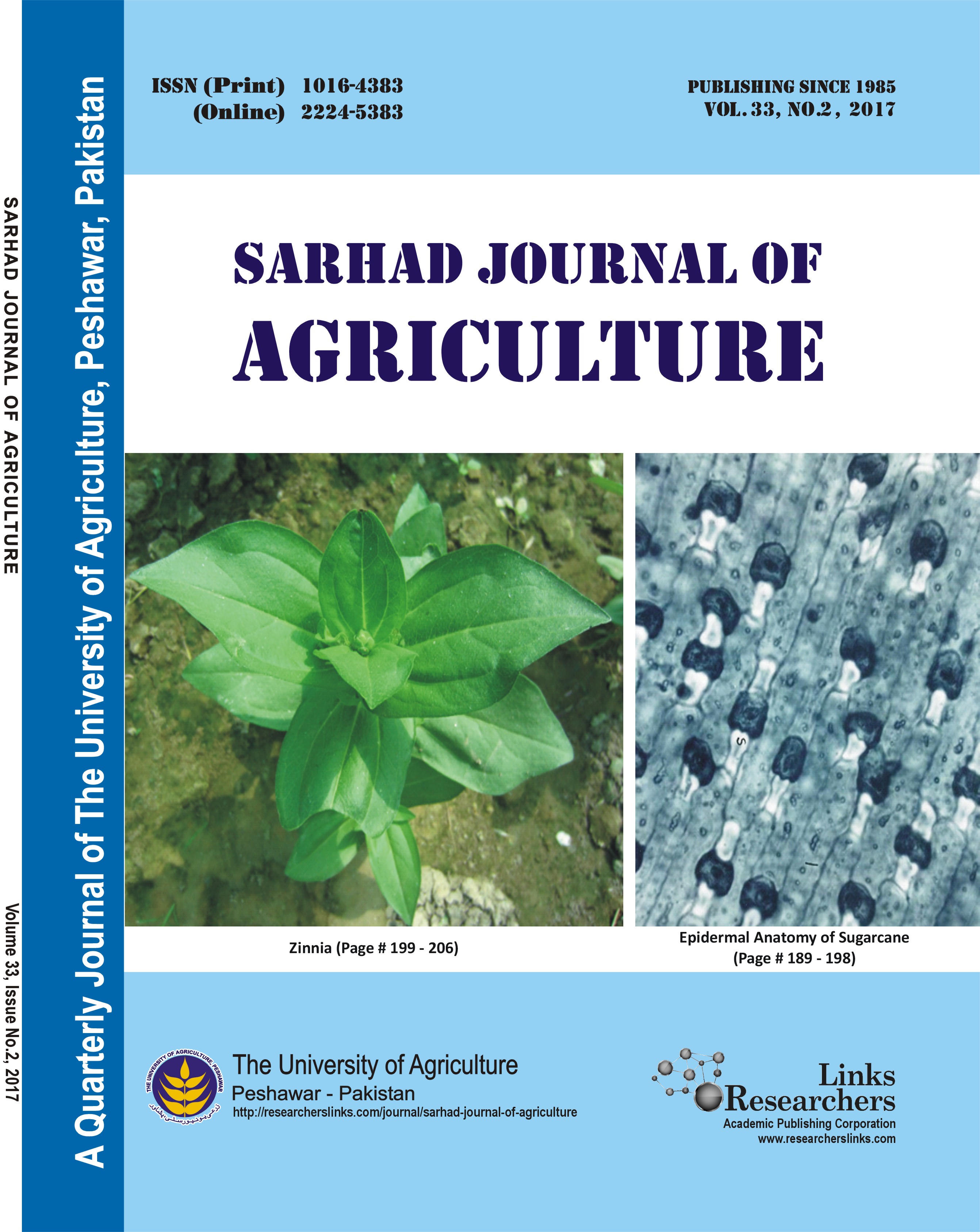Urban Farmers Willingness to Pay for Organic Fertilizer in District Mardan, Khyber Pakhtunkhwa, Pakistan
Urban Farmers Willingness to Pay for Organic Fertilizer in District Mardan, Khyber Pakhtunkhwa, Pakistan
Muhammad1*, Muhammad Suleman Bacha2 and Syed Akhtar Ali Shah1
ABSTRACT
The changing paradigm from a linear economy to a bio-based circular economy is key to sustainable urban waste management planning. The goal is to reduce the environmental damages, enhance food supply, increase employment opportunities and broke the vicious circle of poverty. This study performs a focalized analysis and investigates the influencing factors of urban farmers’ Willingness to Pay (WTP) for organic fertilizer in District Mardan, Pakistan. The Contingent Valuation Method (CVM) was used and data were randomly collected from 384 heads of the household of urban farmers. Data was set in SPSS software version 22.0 and analyzed using descriptive statistics and Logit Model. The study revealed that a major proportion (62.5%) of solid waste is generated from domestic sources followed by commercial (26.9%), institutions (5.8%) and industrial (2.9%) sources. While the majority of respondents (81%) were concerned about the unsafe disposal of solid waste and are willing to pay for organic fertilizer alternative to chemical fertilizer for urban agriculture. We also found that socio-economic variables namely education, monthly expenses, and agriculture farm size positively affect farmers’ WTP for organic fertilizer. Conversely, households’ size and land tenure of the farmer has a negative influence on farmers’ WTP. An Integrated Resource Recovery Centre (IRRC) is needed for green waste management to change the current paradigm by transforming the waste into a valuable resource. The application of WTP can be an effective tool for urban planners and policymakers to incorporate the views of urban dwellers for sustainable SWM, food self-sufficiency and financial autonomy of the public utility company.
To share on other social networks, click on any share button. What are these?







